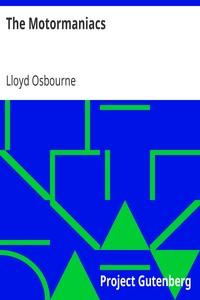Read this ebook for free! No credit card needed, absolutely nothing to pay.
Words: 29944 in 16 pages
This is an ebook sharing website. You can read the uploaded ebooks for free here. No credit cards needed, nothing to pay. If you want to own a digital copy of the ebook, or want to read offline with your favorite ebook-reader, then you can choose to buy and download the ebook.
FLINT AND FEATHER
Collected Verse
To his Royal Highness The Duke of Connaught Who is Head Chief of the Six Nations Indians I inscribe this book by his own gracious permission
INTRODUCTION
IN MEMORIAM: PAULINE JOHNSON
I cannot say how deeply it touched me to learn that Pauline Johnson expressed a wish on her death-bed that I, living here in the mother country all these miles away, should write something about her. I was not altogether surprised, however, for her letters to me had long ago shed a golden light upon her peculiar character. She had made herself believe, quite erroneously, that she was largely indebted to me for her success in the literary world. The letters I had from her glowed with this noble passion: the delusion about her indebtedness to me, in spite of all I could say, never left her. She continued to foster and cherish this delusion. Gratitude indeed was with her not a sentiment merely, as with most of us, but a veritable passion. And when we consider how rare a human trait true gratitude is--the one particular characteristic in which the lower animals put us to shame--it can easily be imagined how I was touched to find that this beautiful and grand Canadian girl remained down to the very last moment of her life the impersonation of that most precious of all virtues. I have seen much of my fellow men and women, and I never knew but two other people who displayed gratitude as a passion--indulged in it, I might say, as a luxury--and they were both poets. I can give no higher praise to the "irritable genus." On this account Pauline Johnson will always figure in my memory as one of the noblest minded of the human race.
Circumstances made my personal knowledge of her all too slight. Our spiritual intimacy, however, was very strong, and I hope I shall be pardoned for saying a few words as to how our friendship began. It was at the time of Vancouver's infancy, when the population of the beautiful town of her final adoption was less than a twelfth of what it now is, and less than a fiftieth part of what it is soon going to be.
In 1906 I met her during one of her tours. How well I remember it! She was visiting London in company with Mr. McRaye--making a tour of England--reciting Canadian poetry. And on this occasion Mr. McRaye added to the interest of the entertainment by rendering in a perfectly marvellous way Dr. Drummond's Habitant poems. It was in the Steinway Hall, and the audience was enthusiastic. When, after the performance, my wife and I went into the room behind the stage to congratulate her, I was quite affected by the warm and affectionate greeting that I got from her. With moist eyes she told her friends that she owed her literary success mainly to me.
And now what does the reader suppose that I had done to win all these signs of gratitude? I had simply alluded--briefly alluded--in the London "Athenaeum" some years before, to her genius and her work. Never surely was a reviewer so royally overpaid. Her allusion was to a certain article of mine on Canadian poetry which was written in 1889, and which she had read so assiduously that she might be said to know it by heart: she seemed to remember every word of it.
Now that I shall never see her face again it is with real emotion that I recur to this article and to the occasion of it. Many years ago--nearly a quarter of a century--a beloved friend whom I still mourn, Norman Maccoll, editor of the "Athenaeum," sent me a book called "Songs of the Great Dominion," selected and edited by the poet, William Douw Lighthall. Maccoll knew the deep interest I have always taken in matters relating to Greater Britain, and especially in everything relating to Canada. Even at that time I ventured to prophesy that the great romance of the twentieth century would be the growth of the mighty world-power of Canada, just as the great romance of the nineteenth century had been the inauguration of the nascent power that sprang up among Britain's antipodes. He told me that a leading article for the journal upon some weighty subject was wanted, and asked me whether the book was important enough to be worth a leader. I turned over its pages and soon satisfied myself as to that point. I found the book rich in poetry--true poetry--by poets some of whom have since then come to great and world-wide distinction, all of it breathing, more or less, the atmosphere of Canada: that is to say Anglo-Saxon Canada. But in the writings of one poet alone I came upon a new note--the note of the Red Man's Canada. This was the poet that most interested me--Pauline Johnson. I quoted her lovely canoe song "In the Shadows," which will be found in this volume. I at once sat down and wrote a long article, which could have been ten times as long, upon a subject so suggestive as that of Canadian poetry.
As it was this article of mine which drew this noble woman to me, it has, since her death, assumed an importance in my eyes which it intrinsically does not merit. I might almost say that it has become sacred to me among my fugitive writings: this is why I cannot resist the temptation of making a few extracts from it. It seems to bring the dead poet very close to me. Moreover, it gives me an opportunity of re-saying what I then said of the great place Canadian poetry is destined to hold in the literature of the English-speaking race. I had often before said in the "Athenaeum," and in the "Encyclopaedia Britannica" and elsewhere, that all true poetry--perhaps all true literature--must be a faithful reflex either of the life of man or of the life of Nature.
Well, this article began by remarking that the subject of Colonial verse, and the immense future before the English-speaking poets, is allied to a question that is very great, the adequacy or inadequacy of English poetry--British, American, and Colonial--to the destiny of the race that produces it. The article enunciated the thesis that if the English language should not in the near future contain the finest body of poetry in the world, the time is now upon us when it ought to do so; for no other literature has had that variety of poetic material which is now at the command of English-speaking poets. It pointed out that at the present moment this material comprises much of the riches peculiar to the Old World and all the riches peculiar to the New. It pointed out that in reflecting the life of man the English muse enters into competition with the muse of every other European nation, classic and modern; and that, rich as England undoubtedly is in her own historic associations, she is not so rich as are certain other European countries, where almost every square yard of soil is so suggestive of human associations that it might be made the subject of a poem. To wander alone, through scenes that Homer knew, or through the streets that were hallowed by the footsteps of Dante, is an experience that sends a poetic thrill through the blood. For it is on classic ground only that the Spirit of Antiquity walks. And it went on to ask the question, "If even England, with all her riches of historic and legendary associations, is not so rich in this kind of poetic material as some parts of the European Continent, what shall be said of the new English worlds--Canada, the United States, the Australias, the South African Settlements, etc.?" Histories they have, these new countries--in the development of the human race, in the growth of the great man, Mankind--histories as important, no doubt, as those of Greece, Italy, and Great Britain. Inasmuch, however, as the sweet Spirit of Antiquity knows them not, where is the poet with wings so strong that he can carry them off into the "ampler ether," the "diviner air" where history itself is poetry?
Free books android app tbrJar TBR JAR Read Free books online gutenberg
More posts by @FreeBooks

: Baron d'Holbach : a Study of Eighteenth Century Radicalism in France by Cushing Max Pearson - Holbach Paul Henri Thiry baron d' 1723-1789; Philosophers France Biography; Radicalism France History 18th century; Philosophy Modern 18th century


: Palaces and Courts of the Exposition A Handbook of the Architecture Sculpture and Mural Paintings with Special Reference to the Symbolism by James Juliet Helena Lumbard - Panama-Pacific International Exposition (1915 : San Francisco Calif.) Art








